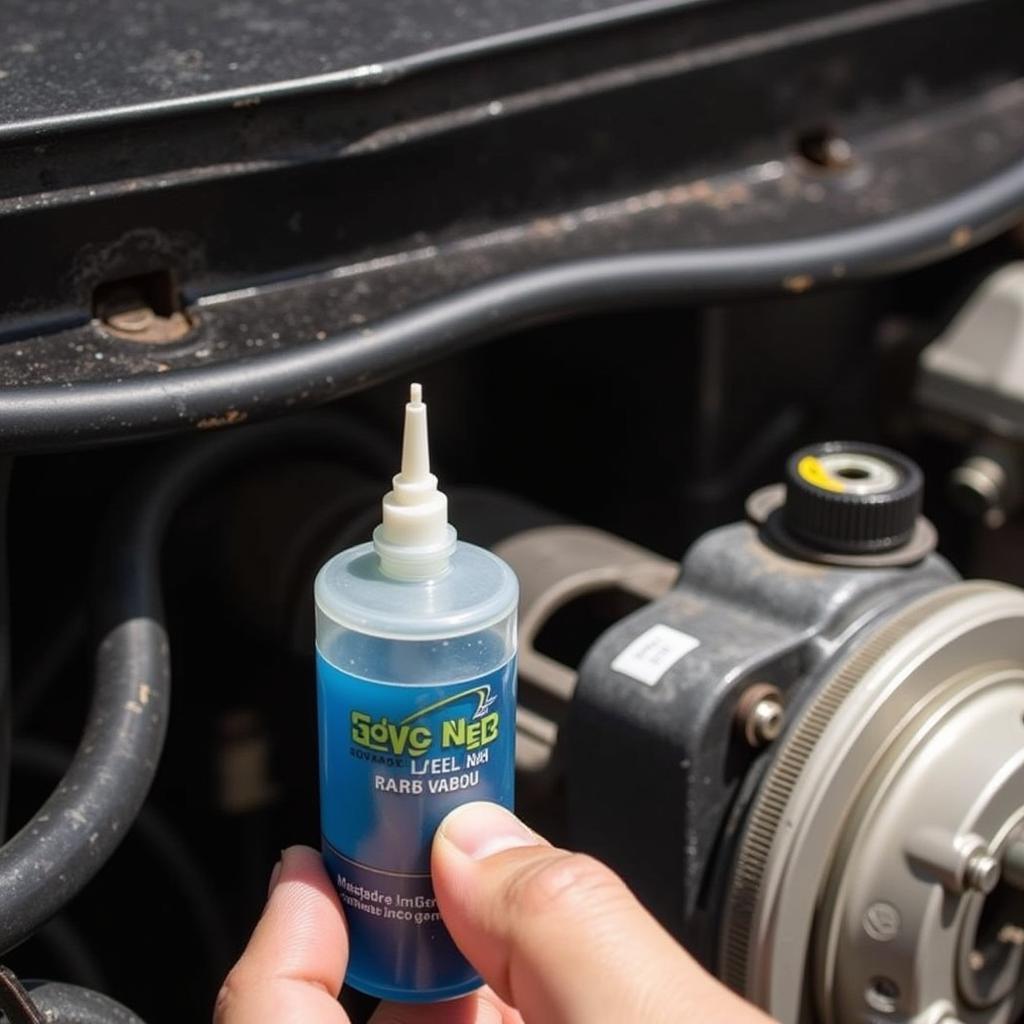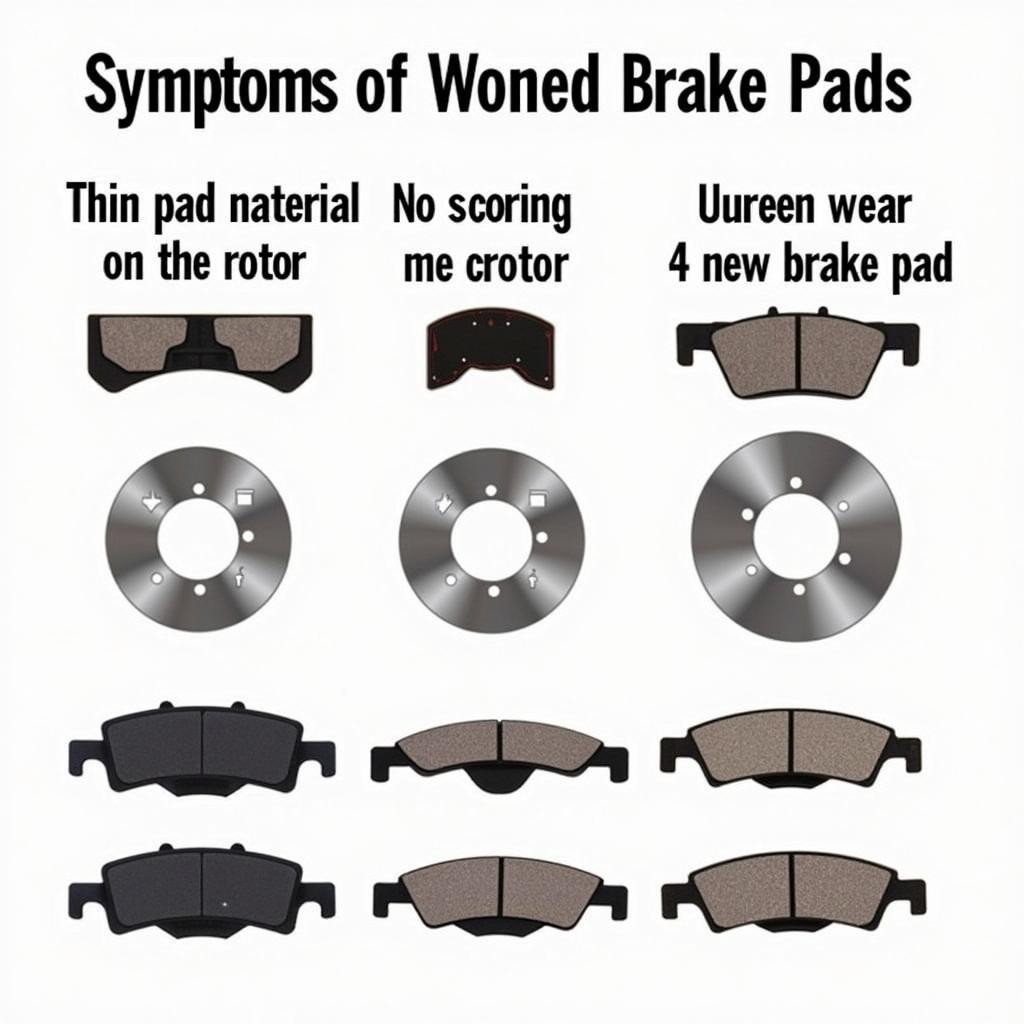Spongy car brakes can be a terrifying experience, signaling a potential problem with your braking system. This guide provides comprehensive information to help you understand, diagnose, and Fix Spongy Car Brakes, whether you’re a car owner, a mechanic, or an automotive technician.
Understanding Spongy Brakes
What exactly are spongy brakes? They feel soft and require more pressure than usual to slow down or stop your car. This soft pedal feel indicates a problem within your braking system that needs immediate attention. Ignoring spongy brakes is dangerous and can lead to brake failure. best place to fix car brakes will offer reliable solutions for this issue.
Why are my car brakes spongy?
Several factors can contribute to spongy brakes, ranging from simple air in the brake lines to more complex issues like worn brake components. Understanding the root cause is crucial for effective repair.
Common Causes and Solutions for Spongy Car Brakes
Air in the Brake Lines
Perhaps the most common culprit, air compressible, unlike brake fluid. This compressibility creates a spongy feel when you press the brake pedal. Bleeding the brakes, a process of removing air from the brake lines, is the solution.
Worn Brake Pads or Rotors
Worn brake components require more travel for the brake pads to make contact with the rotors, leading to a spongy pedal. Replacing these worn parts with new ones restores proper braking function. You might also want to check your how to fix back brakes on a car for more specific instructions.
Brake Fluid Leak
A leak in the brake system, whether in the lines, calipers, or master cylinder, reduces the hydraulic pressure needed for effective braking, causing a spongy pedal. Locating and repairing the leak is critical, followed by bleeding the brakes to remove any air introduced.
Low Brake Fluid
Low brake fluid can also cause spongy brakes. Check your brake fluid reservoir. If it’s low, top it off with the correct type of fluid. However, low brake fluid often indicates a leak, so investigate further.
Faulty Master Cylinder
The master cylinder is the heart of your braking system. If it’s malfunctioning, it can’t generate the necessary pressure, leading to spongy brakes. A faulty master cylinder usually requires replacement.
Old or Contaminated Brake Fluid
Brake fluid absorbs moisture over time, reducing its effectiveness and causing a spongy feel. Regularly flushing your brake fluid, typically every two years, can prevent this issue. fix car uberlandia may provide this service.
 Checking Brake Fluid Level and Condition
Checking Brake Fluid Level and Condition
How do I fix spongy brakes myself?
While some fixes, like bleeding the brakes, can be done with basic tools and some mechanical knowledge, others require specialized tools and expertise. If you’re unsure, consult a qualified mechanic.
When should I take my car to a mechanic for spongy brakes?
If you’ve tried basic troubleshooting and the problem persists, or if you’re not comfortable working on your brakes, take your car to a qualified mechanic immediately. Remember, a functioning brake system is crucial for your safety. Surprisingly, sometimes unrelated issues can manifest as car problems, so it’s worth checking if can chiropractic care fix everything applies to your situation. It’s unlikely but always good to explore all avenues.
Quote from John Smith, Certified Automotive Technician: “Spongy brakes are a serious safety concern. Don’t ignore them. Addressing the issue promptly can prevent accidents and save lives.”
Quote from Jane Doe, Lead Mechanic at Smith’s Auto Repair: “Regular brake maintenance, including fluid flushes and inspections, can prevent many brake problems, including spongy brakes.”
Conclusion
Fixing spongy car brakes is crucial for safe driving. This guide has outlined the common causes and solutions, empowering you to diagnose and address the problem. Remember, if you are uncertain about any aspect of brake repair, consult a professional. Your safety is paramount. For expert advice and assistance, feel free to contact AutoTipPro at +1 (641) 206-8880 or visit our office at 500 N St Mary’s St, San Antonio, TX 78205, United States. We are here to help you fix spongy car brakes and ensure your vehicle is in top condition.






Leave a Reply